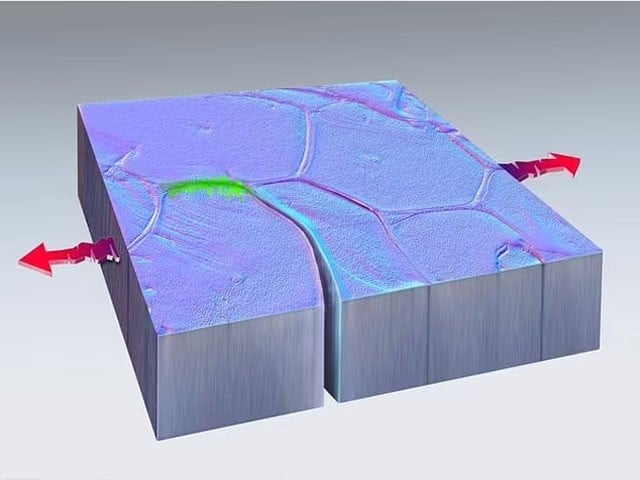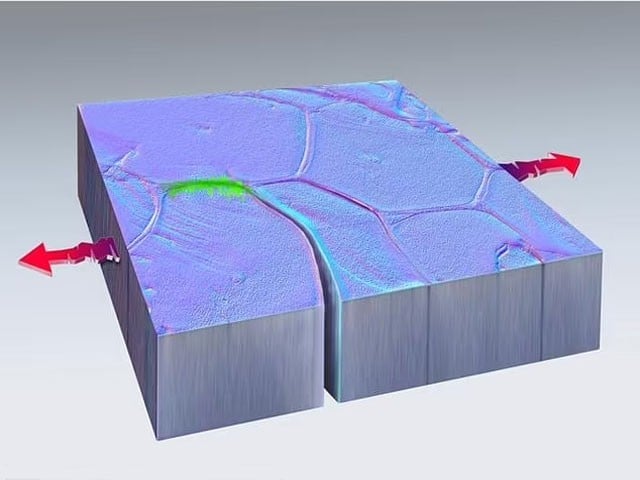
(Photo: Sandia National Laboratories)
New Mexico: The idea of robots that cannot be destroyed is reminiscent of the Terminator movie, but this idea may soon become a reality as scientists have recently observed for the first time a metal that can repair itself without human intervention.
The information revealed in a research conducted in America, that cracks in metals can heal themselves under certain conditions, has changed the way people think about metals.
It’s a discovery that has the potential to revolutionize the field of engineering, leading to self-repairing engines, planes and even robots.
Brad Boyce, a scientist at Sandia National Laboratories who led the research, said it was amazing to see the object live. Researchers have confirmed that metals have a natural ability to self-repair, at least in the case of fatigue damage (weakening of the material due to cyclic loading) at the nanoscale level.
Metals that are used to build large infrastructures such as bridges and aircrafts are constantly subjected to intense stress and movement, causing microscopic cracks to develop over time.
While this fatigue damage usually leads to machine breakage, Brad Boyce and his colleagues observed nano-sized fractures filling up to 18 nanometers in research.
This discovery was very unexpected for scientists. In the study, scientists wanted to know how cracks propagate on a 40-nanometer-wide piece of platinum when pressure is applied. In a 40-minute experiment, the scientists watched as the cracks filled.
(function(d, s, id){
var js, fjs = d.getElementsByTagName(s)[0];
if (d.getElementById(id)) {return;}
js = d.createElement(s); js.id = id;
js.src = “//connect.facebook.net/en_US/sdk.js#xfbml=1&version=v2.3&appId=770767426360150”;
fjs.parentNode.insertBefore(js, fjs);
}(document, ‘script’, ‘facebook-jssdk’));
(function(d, s, id) {
var js, fjs = d.getElementsByTagName(s)[0];
if (d.getElementById(id)) return;
js = d.createElement(s); js.id = id;
js.src = “//connect.facebook.net/en_GB/sdk.js#xfbml=1&version=v2.7”;
fjs.parentNode.insertBefore(js, fjs);
}(document, ‘script’, ‘facebook-jssdk’));



